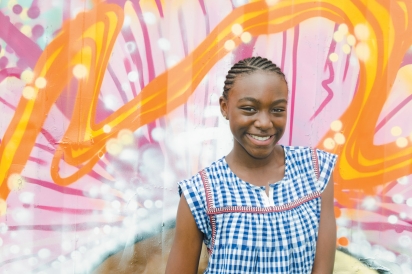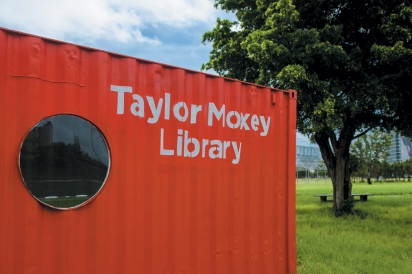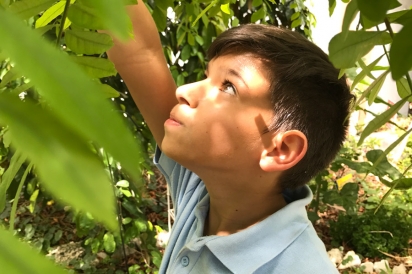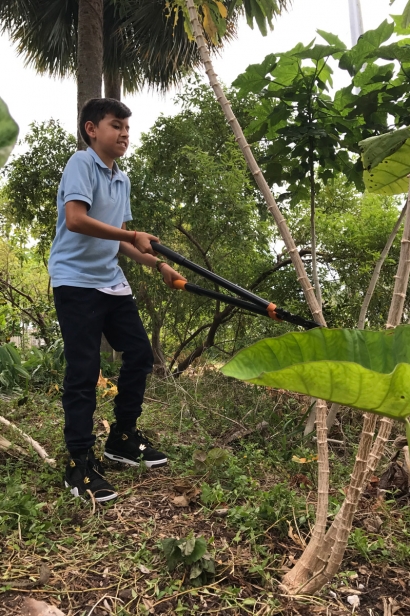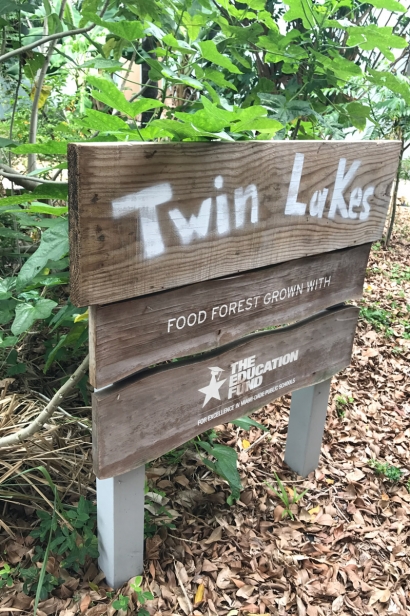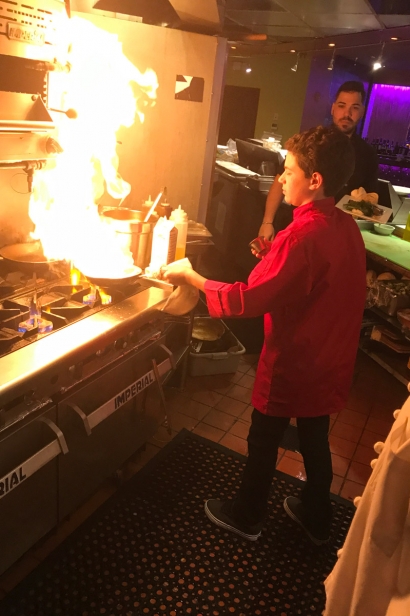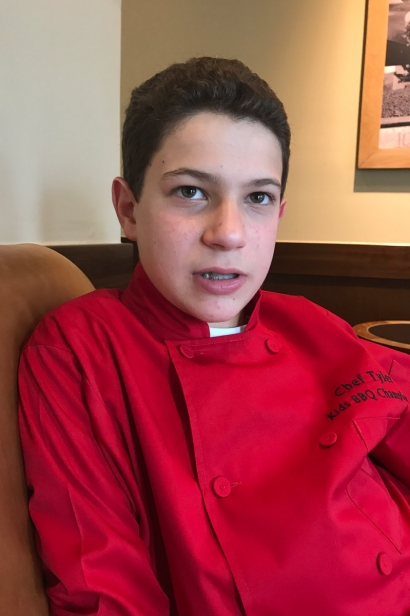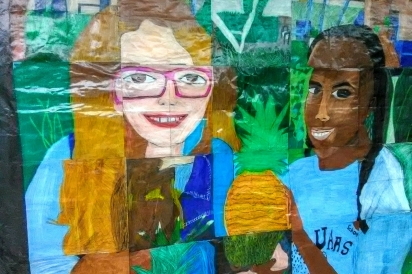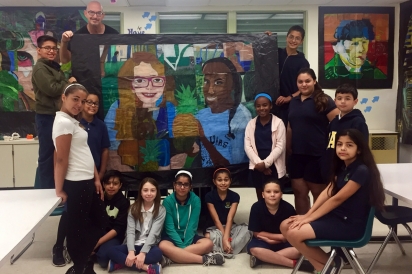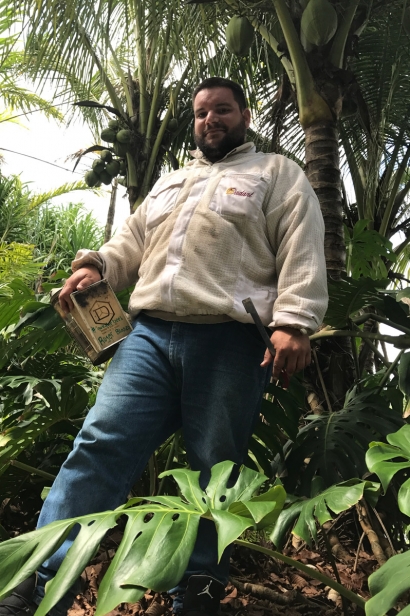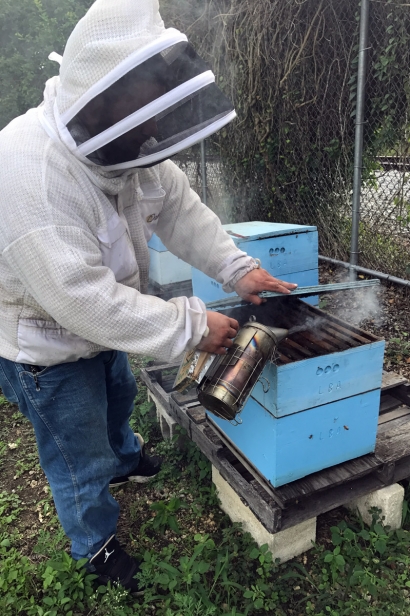Young Superstars
The Entrepreneur/Philanthropist
Taylor Moxey
It’s hard not to be seriously impressed by Taylor Moxey and her accomplishments. At 8, she started making and selling cupcakes to earn some spending money, which blossomed into a baking business with high-profile corporate clients. As Taylor the Chef, she was the youngest person to give a presentation at a TEDx Youth Miami conference when she delivered “Baking Cookies with Love.” (Watch it here). She baked cupcakes in ice cream cones with model Chrissy Teigen on FABLife, a daytime TV show; and judged chicken fingers on a season 10 episode of Beat Bobby Flay on the Food Network. She’s written a book about her experiences, The Adventures of Taylor the Chef; has set up not one but two mobile libraries, one in the Bahamas and the other in a container at Omni Park; and has set up a foundation through which part of proceeds from cupcake sales help children locally, nationally and internationally.
Now 11, she is still involved in her baking business and tidying up her library on a muggy summer day. “We’re getting a telescope!” she announces, proud of the many donations that make up the contents in the container, with more boxes of donated books still to come. Unfailingly polite and down-to-earth, Taylor covers familiar territory – how she got her start with a $40 loan from her parents – and shares how she started to cook: “I learned to bake from scratch. Trial and error,” she says. Then, she “used Food Network recipes from the cupcake boards.” Both her parents are vegan, but she’s not – “I would be starving!” – and her cupcakes and cookies use plenty of eggs and dairy products. But, she says, her father, Vernon, makes great cauliflower patties.
What’s next? Well, at the moment her mind is on an upcoming dance competition in New York City, and she wants to be a professional dancer, and continue her baking career, too. Her philosophy: Do what you love. Not bad advice for someone who’s not yet 12.
Check it out: Visit the Taylor Moxey Mobile Library at Omni Park, a seven-acre public green space that hosts live performances, events and public art. (And you can always find edible South Florida at her library!) Find out more about her projects at taylorthechef.com
The Yuca Whisperer
Jose Silva
To hear Jose Silva, 11, tell the story, he was very shy when he started taking care of the food forest at Twin Lakes Elementary School in Hialeah in third grade. “I didn’t want to participate.” But then he asked the teacher about the yuca in the garden and when it was going to be harvested, he recalls. “On Monday morning, we were digging it out … it’s harder than it looks."
A couple of years later, Silva is anything but shy, demonstrating how to pull the yuca plants out of the ground and chop off the fat roots, which are then boiled and seasoned with garlic and onions. He pointed to the stems. “I demonstrated how to plant them sideways,” he says. “You look for the fat ones – those are the girls. The skinny are the boys, they don’t produce, kind of like in real life.” His father, who learned how to plant yuca, along with banana, boniato and hog plum, on a visit to Cuba, taught his son about gardening, and Silva quickly embraced the school’s lush edible gardens, a project of The Education Fund.
While all the students get to benefit from learning about and eating all the fresh, healthy produce, it is Silva who is the garden’s go-to spokesperson. He leads visitors on a tour, naming the bountiful fruits and vegetables, stopping to pick ripe fruits or pluck leaves to sample. There’s beautyberry (good for jam), Everglades tomato (sweet like candy), papaya, red hog plum, calamondin, tamarind, acerola, figs; African basil, Brazilian and Malabar spinach, moringa, callaloo, pigeon pea, katuk and edible hibiscus, to name just a few of the crops planted in different parts of the school. Silva shows how he propped up a fallen chaya tree, also known as tree spinach, and offers a small red berry from a small tree called Muntingia calabura, the Cotton Candy Tree. “It actually tastes like cotton candy,” he says.
A member of the school’s garden club, Silva hopes to continue cultivating his interest in edible gardens and cooking when he moves on to Palm Springs Middle School. “I didn’t think I would come this far,” he says. “It’s fun.”
Food Forests: Twin Lakes Elementary School is one of more than 50 Miami-Dade schools that participate in The Education Fund’s Food Forests for Schools Initiative. Find out more at educationfund.org.
The Kid’s Chef
Tyler Zager
When Kitchen 305 at the Newport Beachside Hotel & Resort wanted to upgrade its kids’ menu, they turned to 13-year-old Tyler Zager of Weston. The winner of Food Network’s “Kids BBQ Championship” came up with playful twists on kids’ greatest hits – bacon-wrapped hot dogs on pretzel buns, Cap’n Crunch-coated fried chicken and waffles, boneless wings with Tyler’s Secret BBQ Sauce, sweet potato fries with marshmallow dipping sauce. The menu, which debuted in May, is a hit. “We catch parents stealing bites from their child’s plate,” says resort owner Steven Hurowitz.
Tyler is a focused young man who nods thoughtfully while remembering the meetings with the restaurant team. “We tested recipes and did a lot of planning” to come up with the menu, he recalls. Even at his young age, he’s already logged plenty of time in the kitchen, cooking with his grandmother and following his mother around the kitchen when he was young. “In our house, it has always been important to me to have my entire family sit down and eat dinner together,” says his mother, Lainie Zager. “Tyler soon began to help me cook the nightly meals.” He eventually took over in the kitchen and began to prepare all the family meals by himself.
The youngest of three boys, Tyler took lessons at a local kids’ culinary school and Publix Aprons and did bake sales for No Kid Hungry at farmers markets in Plantation and Tamarac. “He’s the real deal, very inquisitive,” says Gary Kareff of Farmers Market Honey, who convinced him to use avocado honey in his barbecue sauce recipe because it was thicker and tasted like molasses. “He’s very professional, talks to customers,” adds market co-founder Jerry Kugel. “I love to listen to him.”
Tyler says he planted a backyard garden this past season, growing cucumbers, tomatoes, basil, parsley, carrots, peppers, rosemary, green beans and kale. “Next year, Brussels sprouts,” he says. And he offered up a word to kids who don’t know how to cook: “There’s nothing to be scared about. Start helping your mom. It’s a fun thing to do. Start with mac and cheese.” With that parting advice, Tyler joined his mother and brother to get back home and pack for summer camp.
Try it: Catch Tyler’s kids’ menu at the Kitchen 305 at the Newport Beachside Hotel & Resort in Sunny Isles Beach. He also sells baked goods to raise money for No Kid Hungry twice a year at the Plantation Farmers Market and the Tamarac Farmers Market.
Rumpf and Peyron’s Pineapples
The Fifth Graders in Jack D. Gordon Elementary School + Teacher Michael Flaum
On June 8, 2014, Ileana Frias-Peyron and Christine A. Rumpf, teachers at Jack D. Gordon Elementary School in Southwest Miami-Dade, died tragically in a car accident in Texas. Considered the school’s “green teachers,” they led recycling efforts and grew vegetables in their garden. As a tribute to the teachers, a pineapple patch was planted in their memory. “The pineapple is the queen of all tropical fruits. Adorned with a royal top, tough exterior, yet bursting with sweetness on the inside, there is no better fruit to represent the beloved teachers,” says teacher Elena Izquierdo. “These teachers instilled in their students love and respect for each other and for our environments. Though they are no longer with us, their gardens endure and their legacy lives on.”
To commemorate their memory with first harvest of pineapples, art teacher Michael Flaum enlisted his fifth-grade students to capture their garden. Two students, Andrea Lara and Madison Wong, were chosen to represent the late teachers. A photo was taken and cut into pieces. Each child used Color Sticks to illustrate their piece, and then the puzzle was put together. “The students were so happy to do this project in the memory of two teachers who worked very hard for over 18 years in our school,” he says.
The Beekeeper
Roger Blanco
At 25, Rogelio “Roger” Blanco is older than others featured here, but he’s been working with bees since he was in fourth grade, when his family adopted beekeeping as a hobby at their Redland avocado grove. He remembers helping his father build the frames and learn how to use pine needles for the smokers used to calm the bees. “It was a bonding time,” he recalls. “I was never not beside my dad.” A 2009 graduate of G. Holmes Braddock High School, Blanco says he was the “farm boy” who knew about trees in science class and gave his teachers not apples, but honey. Soon, the family hobby turned into a business, and he credits the 2013 opening of a local business, South Florida Bee Supplies, with giving his family, along with aspiring and working beekeepers, easy access to tools and information.
Blanco spent plenty of time at Fruit and Spice Park, first as a volunteer and later as an employee in 2011. From now-retired director Chris Rollins, he learned about tropical fruits, grafting, air layers and propagation of fruit trees. He led park tours three times a day, and talked about the 160 varieties of mangos and other tropical fruits; cooked in the Mango Cafe; sold gifts in the gift shop; cut up fruits for tasting; even mowed the grounds. “I worked the summer kid’s classes – fishing, making food, nature – I did it all at the park,” he says. After leaving the park as an employee in 2015 (though you’ll still see him there, and his parents, selling G’s Dream Farm honey), he started his job with the state, inspecting hives for disease and compliance.
“In 2012, there were 630 registered beekeepers in the state,” he says. “Today, there are 4,300.” In the course of his job, Roger says he gets stung about once a day, and no longer wears gloves while working in the hives. Blanco, whose ringtone is bees buzzing, loves talking about bees and tropical fruits as much as working with them. “I’ve done talks at high schools, I’ve been invited to Earth Days and career days,” he says. Despite Roger’s relative youth, colleagues agree he’s one of the most knowledgeable and enthusiastic people to share the joys of tropical fruits and honey.
Bee aware: Find out more about bees at the Tropical Beekeepers Association regular meetings in Homestead and the Micro Apiary at the Urban Farming Institute in Oakland Park. You can also find out more from the UF/IFAS site.



